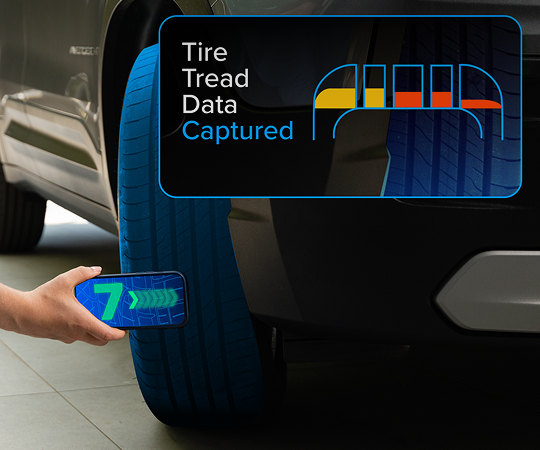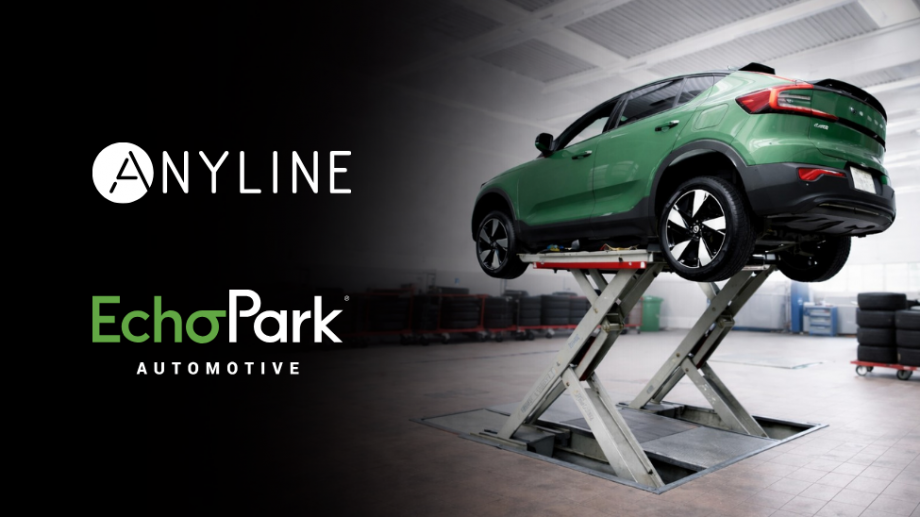
AI for Vehicle Inspection: How Machine Learning Can Help
Vehicle inspection is a crucial process that ensures the safety and compliance of vehicles on the road. Traditionally, this has been a manual, time-consuming task. However, the advent of Artificial Intelligence (AI) and Machine Learning is revolutionizing the vehicle inspection process, making it faster, more accurate, and more efficient.
Consider how AI will impact vehicle inspection in the future (and how it is doing it right now with tools like Anyline already utilizing its power).
The Importance of Vehicle Inspection
Vehicle inspections provide users with insight into the working condition of the car or truck, including whether it is safe or, in some cases, whether modifications are necessary to improve efficiency, fuel economy, or overall lifespan for the vehicle. In commercial vehicles, inspections are necessary to meet regulatory compliance and operational efficiency standards.
However, the traditional methods of inspection often involved manual checks, which were time-consuming, subject to human error, and lacked scalability.

Introduction to AI and Machine Learning
AI is the use of computer systems to perform tasks that typically require human intelligence, including processes like visual perception, decision-making, and language understanding. Machine Learning is a subset of AI that enables systems to learn from data and improve over time without being explicitly programmed. These technologies have been making waves across various industries, and vehicle inspection is no exception.
AI Applications in Vehicle Inspection
AI is being applied in various ways to improve vehicle inspection. Computer vision, a subfield of AI, plays a pivotal role in enabling machines to “see” and interpret visual data from cameras and sensors. This technology, like that which Anyline has developed and offers, allows AI systems to digitize analog information and identify defects, anomalies, and structural issues in vehicles. These systems can quickly process vast amounts of visual data and make accurate assessments, reducing the reliance on human inspectors.
The benefits of AI in vehicle inspection are substantial.
- It enhances accuracy by minimizing human errors and ensures consistent evaluations across different inspections.
- It significantly speeds up the inspection process, allowing for more vehicles to be examined in a shorter time frame.
- AI helps save time and costs for businesses while improving safety and compliance.
Key Technologies and Tools
In AI-powered vehicle inspection, several key technologies and tools are in play. Computer vision algorithms, such as convolutional neural networks (CNNs), are at the forefront. These algorithms analyze images and videos, digitize analog information, and detect and classify defects or issues in vehicles. Deep learning, a subset of machine learning, is used to train these models to recognize various patterns and abnormalities.
The Role of Data in AI Inspection
The success of AI in vehicle inspection relies heavily on high-quality data. To train AI models effectively, large datasets of vehicle images with both normal and defective conditions are required. Data collection methods may involve capturing images from various angles, under different lighting conditions, and in different environments.
Data plays a crucial role not only in training but also in continuous improvement. AI systems can learn from new data and adapt to changing conditions, making them valuable assets in the dynamic field of vehicle inspection.

Real-World Use Cases
AI-powered vehicle inspection has already shown its worth in various industries. Anyline’s mobile data capture solutions are used daily by fleet managers and service centers to digitize all types of driver, vehicle, and tire information, including:
- License plates
- VINs
- Tire sidewalls
- Tire tread depth
- IDs and more.
Anyline can be used on any type of mobile device and integrated into the workforce and driver-facing apps. Additionally, in automotive manufacturing, AI systems are used to inspect vehicles during assembly, identifying issues such as paint defects, misaligned components, or missing parts. These systems work with incredible speed and accuracy, helping manufacturers maintain quality standards.
Logistics companies are also benefiting from AI inspection. For example, with the use of Anyline’s tools in place, they can assess the condition of vehicles in their fleets, ensuring safety and compliance with just a quick scan. Public safety organizations use AI to inspect law enforcement vehicles, fire trucks, and ambulances, guaranteeing that these critical vehicles are always in optimal condition.
The Future of AI in Vehicle Inspection
AI is poised to play an increasingly significant role in the future of vehicle inspection. As AI technologies continue to advance, the accuracy and speed of inspections will further improve. There will be more integration of AI in autonomous vehicles, which will be capable of self-diagnosis and reporting issues in real-time.
The technology may also become more accessible to smaller businesses and inspections outside of traditional settings. As AI solutions mature, the benefits of improved safety, compliance, and efficiency will extend to a broader range of industries and applications.
Invest in Change Using Anyline’s Technology
In conclusion, AI and Machine Learning are transforming vehicle inspection by making it faster, more accurate, and more efficient. The technology, powered by computer vision and machine learning algorithms, like Anyline’s, is already making a significant impact across various industries.



